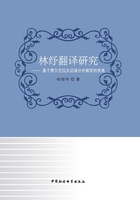
Abstract
Lin Shu was one of the most famous writers and translators in modern China.A man of remarkable talent,who produced in his life a large number of poems,essays,novels,and literary treatises,he made his contribution to modern Chinese literary history mainly by hisamazingly extensive translations of foreign novels,which were extremely popular during the late Qing dynasty and early Republic of China period.Kang Youwei,the famous scholar and reformist,praised Lin Shu as one of the “two talents of translation in China”( the other one being Yan Fu who translated western political and social sciences),while Hu Shi,another famous scholar,regarded him as “the first man who ever translated and introduced modern western literature into China”.It was through Lin Shu’s translations that modern Chinese came to know many world-renowned writers and their books and realized that western literature was as excellent as Chinese literature.As a pioneer in modern Chinese history of literary translation,he started literary translation in China and made the translation of foreign literature a conscious practice.Therefore,Lin Shu’s translation is of great academic interest in the Chinese history of translation and modern Chinese literary history.This is the reason for choosing it as the object of the present study.
A review of existing studies on Lin Shu’s translation at home and abroad shows that they are mostly casual comments,value judgements of correctness or adequacy of the translations using prescriptive norms,or political and ideological appraisals.They all fail to take into account the historical and cultural context in which Lin Shu’s translation was in.Moreover,they are only given a marginal place in the general study of modern Chinese literature.To make up for these inadequacies,this thesis is reception context oriented and the translator’s cultural attitude oriented.Using the British linguist Norman Fairclough’s Discourse Analysis Framework,it explores Lin Shu’s translation from three dimensions – text,discursive practice,and social practice,and then from the discourse system as a whole,discusses the factors or traits of Lin Shu’s translation that help the modern transformation of Chinese literature.The study seeks to answer 4 questions:What are the characteristics and the causes of the formation of Lin Shu’s translation style? How is Lin Shu’s translation process like? What translation norms are they subjected to? Why can Lin Shu’s translation impose influences on the modern transformation of Chinese literature? Intended to deepen our understanding of Lin Shu’s translation and provide a case for translation criticism,the investigation is of significance in the study of translation history and literary history as well as of practical significance.
The thesis consists of seven chapters.Chapter 1 gives a brief summary of Lin Shu’s life,his translations,and the existing studies on his translation at home and abroad.It also presents the theoretical foundation,purpose,focus,approach,significance,and originality of the research.
Chapter 2 focuses on the formation of Lin Shu’s translation.The vigorous “novel revolution” in the late Qing dynasty was the social and cultural setting of the emergence of Lin Shu’s translation; the modern literary trend emphasizing statecraft provided for him a cultural momentum so that he valued translation as his personal industry to achieve the practical purpose of reforming society and stimulating the people.
Chapter 3 examines Lin Shu from the text dimension by probing his translation style.Beginning with a discussion of translation style in general,the chapter attempts to build a two-part analysis pattern for Lin Shu’s translation style by considering it from two aspects:stylistic features and stylistic formation.Research shows that blending different stylistic elements,Lin Shu’s translation evolves a unique hybrid literary language which features old stylistic traditions but with some stylistic reforms.It is a new style which resulted from an interplay of factors including translator,target reader,and the cultural translation strategy of sinicizing western things and making them serve domestic needs.
Chapter 4 approaches Lin Shu from the dimesion of discursive practice by examining his translation process.The chapter consists of two parts.The first part centers on Lin Shu’s translation mode by discussing his collaborative translation process,disapproving mistaken ideas about this translation mode and pointing out that it deserves serious academic treatment; this part also analyzes Lin Shu’s collaborative interpreters’ status and function.The second part studies Lin Shu’s selection of source texts and clarifies the differences between biaoshi(标示 label) and leixing(类型 type) in Lin’s translated novel; this part reveals that Lin Shu selected source texts out of his political motives of enlightening the Chinese,that is,bringing to them advanced western ideologies.
Chapter 5 analyzes Lin Shu’s translation from the dimension of social practice by studying his translation against the general socio-cultural background.In discussing Lin Shu’s translation norms,this study uses Andrew Chesterman’s classification into expectancy norms and professional norms.It is shown that,in respect of expectancy norms,Lin Shu’s translation follows political,ethical,religious and literary norms; and that in respect of professional norms,it complies with relational norms,accountability norms and communication norms.The norms in Lin’s translations show that in many cases there are special reasons for Lin and his collaborators to make deletions,additions,and alterations in translation.
Chapter 6 studies the influences of Lin Shu’s translation.The chapter emphasizes the role Lin Shu’s translation played in developing novel types,artistic forms,and literary theories,and in bridging the classical and the modern in modern Chinese fiction.The chapter also exemplifies how Lin Shu’s translations influenced the writing of modern novelists and the literary road and tendency of writers of the May Fourth period.
Chapter 7,as a conclusion,explores the reasons for the success of Lin Shu’s translation from the angle of the discourse system,and demonstrates its edification for modern translation criticism,stressing that in modern translation criticism the cultural setting and translators’ cultural orientation must be taken into account.
Key words:Lin Shu’s translation,Fairclough’s Discourse Analysis Framework,text,discursive practice,social practice,modern transformation of Chinese literature